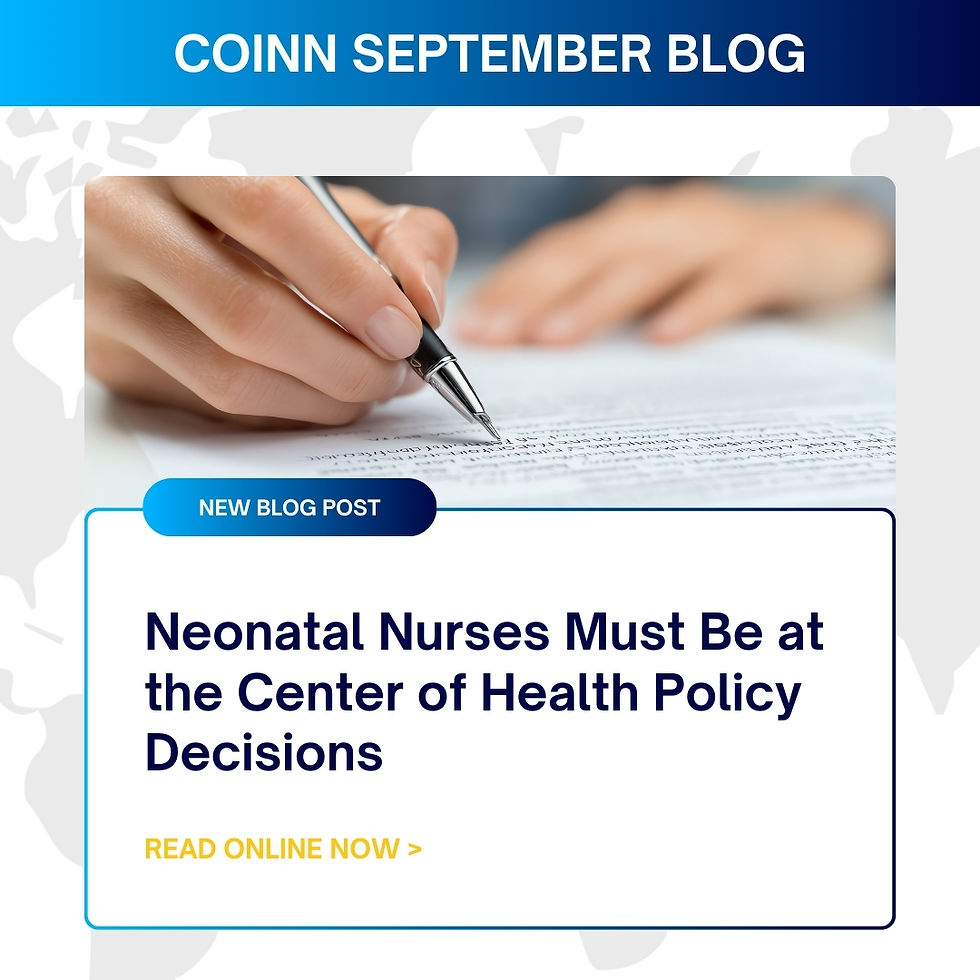The recent decision by the Supreme court of United States
- ceo10529
- Aug 22, 2022
- 3 min read

The recent decision by the Supreme court of the United States has ensured that debates over abortion will continue to dominate the social & political landscape in the US and abroad for decades to come. In this blog, we are not venturing into the moral or political debates over abortion rights. Instead, we explore potential consequences to the nursing workforce and patients through the lens of neonatal health care.
First, it is important to acknowledge that even the healthiest of women with access to care can, and do, have significant and often severe, even life-threatening, pregnancy-related problems and complications. And it is well documented that the risk for pregnancy problems increases as economic resources and access to care decrease.
When pregnant women need to make gut-wrenching, morally complicated decisions, many, even a majority, of people believe that the pregnant woman should make those decisions. And that she should make these types of decisions in consultation with her health care provider, her partner, and any other person she chooses.
With the right to choose taken from women, the cascading impact on healthcare providers is wide-ranging. First, it calls into question the expertise and training of providers; second, it makes government officials the final arbitrator in the healthcare provider-patient relationship regarding reproductive services. But it also places nurses, physicians, and other direct service healthcare providers in legal jeopardy.
What are the rules and guidelines for what procedures are allowed? When and under what conditions are they to be permitted? The answer to these varies by state. This situation is untenable. It places healthcare workers, already stressed and overworked, in the position of being up to date on detailed and often confusing laws. It further challenges how they are to provide the best medical advice and direction and ensure they "do no harm." These are the commitments made when licensed healthcare workers take their oaths.
The legal decision not to allow women to choose what to do in a healthcare setting has placed healthcare workers in a complicated, stressful situation where they may be unable to provide the best medical options. Prohibiting a healthcare worker from providing specific treatment options means they will not discuss those options with patients, and patients may not be getting the best care choices. In short, patients have a significant information gap, and providers may be violating their promise to "do no harm.
But what about the other patient in the maternal child health care equation? The newborn, the neonate, if you will. What are the short and long-term consequences for born children when decisions about which pregnancies to carry to term and which to not carry to term is made by legal fiat rather than medical experts or the pregnant woman?
Forcing an already stressed workforce to become legal experts and frame their medical recommendations and decisions in a legal context is sure to have deleterious consequences on the recruitment and retention of healthcare professionals providing maternal child health care.
And while physicians, midwives, or nurse practitioners will be making many choices about which treatment options are available to their pregnant patients, the nurses are responsible for supporting patients and addressing healthcare decisions' social and emotional consequences.
This situation forces us to ask: how much more can be put on the plates of the already overworked, over-stressed nursing workforce? How will the nurses be able to provide physical, emotional, and social support to pregnant women, new moms, and neonates, and is the situation potentially going to result in more at risk newborns?







Comments